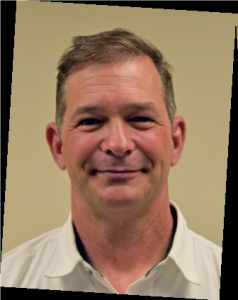Substance Use Disorders for the Non-SUD Professional with Michael McGuire, LCSW, LCAS, LMFT, CCS, MINT
Where: Northwest Area Health Education Center ,Deacon Tower Learning Center 475 Deacon Blvd., Winston-Salem, NC 27105
When:: October 4, 2017, Wednesday, 10 am – 12 pm
Continuing Education: 2 hours
Fees: $25.00 per CLS Workshop; Workshops are free of charge to current students, faculty, staff, and field instructors of UNC-CH School of Social Work (discount taken during online registration)
Description:
Regardless of specialization and expertise, behavioral and medical healthcare professionals are increasingly expected to effectively screen, refer, and work with clients experiencing problems stemming from their use of psychoactive substances. This foundational training is designed specifically for professionals wanting an overview of today’s approach to substance use treatment. The workshop will address the historic and contemporary models for addiction, the emerging language of addiction, screening and assessment of substance use disorders, drug classifications, and a host of other components essential when working with clients with substance use problems.
Bio:
 Michael McGuire is employed by the University of North Carolina at Chapel Hill School of Social Work as a Clinical Assistant Professor and the Director of the Substance Use and Addiction Specialty program. He is licensed as a Clinical Social Worker (LCSW), Marriage and Family Therapist (LMFT), Clinical Addictions Specialist (LCAS), and is a Certified Clinical Supervisor (CCS) and Motivational Interviewing Network Trainer. His areas of expertise include: adolescent and family development, childhood trauma, substance use treatment, experiential learning, military family life-cycles, Motivational Interviewing, Feedback Informed Treatment, clinical supervision, behavioral health implementation science, ethics, and workforce development. Michael worked as a clinical director of a comprehensive child and family treatment agency and recently returned from Germany following a three-year excursion working with American military families stationed abroad. He enjoys puns, travel, and personal growth. In that order.
Michael McGuire is employed by the University of North Carolina at Chapel Hill School of Social Work as a Clinical Assistant Professor and the Director of the Substance Use and Addiction Specialty program. He is licensed as a Clinical Social Worker (LCSW), Marriage and Family Therapist (LMFT), Clinical Addictions Specialist (LCAS), and is a Certified Clinical Supervisor (CCS) and Motivational Interviewing Network Trainer. His areas of expertise include: adolescent and family development, childhood trauma, substance use treatment, experiential learning, military family life-cycles, Motivational Interviewing, Feedback Informed Treatment, clinical supervision, behavioral health implementation science, ethics, and workforce development. Michael worked as a clinical director of a comprehensive child and family treatment agency and recently returned from Germany following a three-year excursion working with American military families stationed abroad. He enjoys puns, travel, and personal growth. In that order.
Learning Objectives:
At the completion of this workshop, participants will be able to:
- Use the emerging, less stigmatizing language of addiction and treatment;
- Discuss key historical and contemporary paradigms of addiction;
- Become familiar with the classifications of drugs;
- Identify simple screening tools used to detect substance related problems;
- Understand how the DSM 5 and ASAM Criteria organize treatment protocol in the United States;
- Describe treatment options available to persons who have substance related problems and their families, and be able to make recommendations for specific levels of care